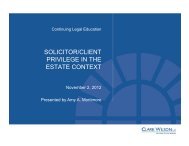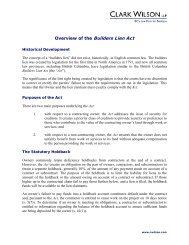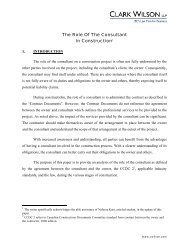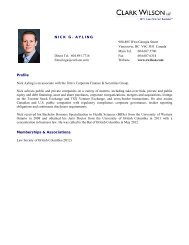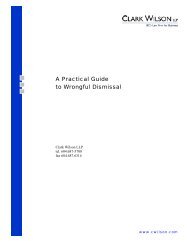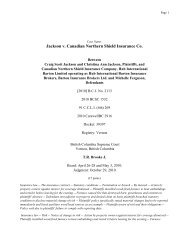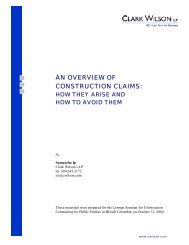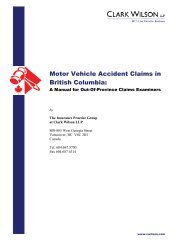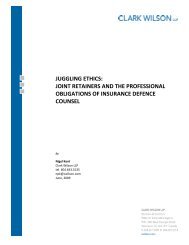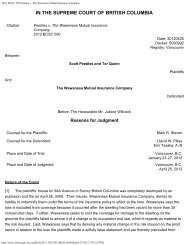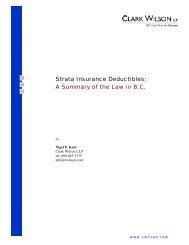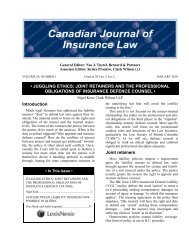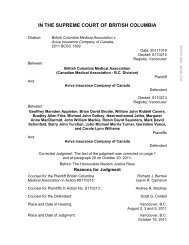Create successful ePaper yourself
Turn your PDF publications into a flip-book with our unique Google optimized e-Paper software.
Kruger Products Limited v. First Choice Logistics Inc. Page 30<br />
[60] With respect, it appears the trial judge erred in failing to apply the trilogy and<br />
North Newton, among other authorities, to the WMA. Paragraph 17A, like the<br />
insurance clauses in those cases, went much farther than the terms of the receipt,<br />
which contained no relevant covenants regarding insurance. Paragraph 17A<br />
required Scott to maintain “insurance of its property and inventory within the<br />
warehouse” and to name FCL as an additional insured under this “primary<br />
coverage”. The terms of the agreement itself were to prevail over those in Appendix<br />
C in the event of a conflict.<br />
[61] Assuming that the question remains one of interpretation, I acknowledge<br />
that some of the decided cases are difficult to reconcile on the question of<br />
what wording is necessary for the “covenant to insure” principle to result in<br />
the barring of a subrogated claim. (See the online article by Mr. Nigel Kent,<br />
Tort Immunity: Covenants to Insure and Waivers of Subrogation,<br />
www.cwilson.com/publication/insurance/tort-immunity.pdf.) Mr. Kent notes in<br />
particular a short oral judgment of this court delivered in April 1980 in Leung<br />
v. Takatsu and reported at [1992] 3 W.W.R. 129. The better view seems to be,<br />
however, that the insertion of a covenant to insure (which was not present in Rose<br />
v. Borisko) on the part of a bailor or landlord is generally regarded as intended for<br />
the benefit of the bailee or tenant. The wording of para. 17A in this case is not<br />
identical to that of any of the cases to which we were referred, but is clearly<br />
analogous to the wording in cases in which subrogated claims were disallowed. As<br />
the Court stated in North Newton, “where there is in a lease a covenant by a landlord<br />
[in this case bailor] to insure, the tenant [in this case warehouser] should benefit<br />
from it unless there is something inconsistent with such a result contained in the<br />
lease document [here the WMA].” (At para. 33.)<br />
2013 BCCA 3 (CanLII)<br />
[62] I see no inconsistent wording in the WMA, and indeed the parties’ express<br />
acknowledgement that insurance obtained under para. 17A would “respond as<br />
primary coverage” strengthens the case for tort immunity on FCL’s part. I conclude<br />
that Scott’s obligations under para. 17A were clearly intended for the benefit of FCL.



